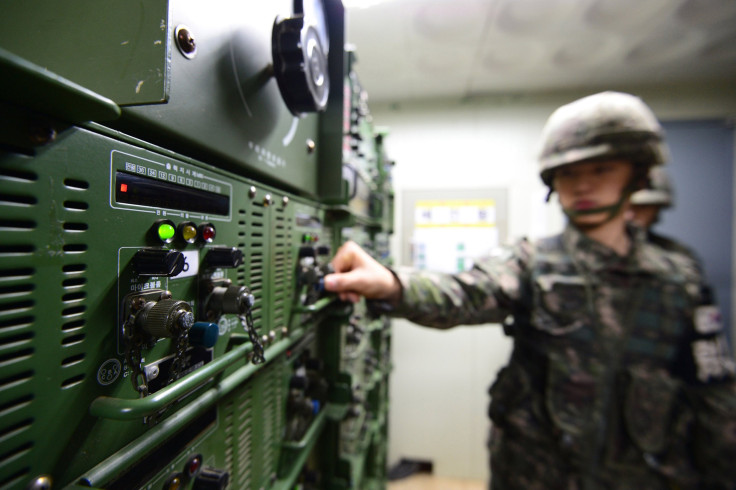North Korea Says US, Allies Are ‘Jealous’ Of Its Hydrogen Bomb, Warns Of A ‘War’

North Korea has warned that the reaction from the U.S. and its allies, including propaganda broadcasts being conducted by South Korea near the border, could lead to a war. Seoul's loudspeaker broadcasts resumed Friday after a five-month hiatus, in retaliation for North Korea's claim Wednesday that it successfully tested its first hydrogen bomb.
"Jealous of the successful test of our first H-bomb, the U.S. and its followers are driving the situation to the brink of war, by saying they have resumed psychological broadcasts and brought in strategic bombers," Kim Ki Nam, head of the ruling Workers' Party propaganda department, said at a rally Friday, according to Reuters.
Pyongyang's latest nuclear test — its fourth — drew international criticism and talks between the U.S. and Seoul on the possibility of deploying advanced U.S. warplanes on the Korean peninsula that can deliver nuclear weapons to South Korea. These weapons could include B-2 and B-52 bombers, and a nuclear-powered submarine, Reuters reported, citing other media. Meanwhile, diplomats at the United Nations Security Council have pledged to introduce fresh sanctions against the country led by Kim Jong Un, the Associated Press (AP) reported Friday.
Kim Ki Nam's comments marked the first official response from North Korea over South Korea’s propaganda broadcasts, which were followed by retaliatory broadcasts from the North. Similar broadcasts were conducted by Seoul in August 2015 after a landmine explosion near the border injured two South Korean soldiers. Seoul had blamed the incident on North Korea, which repeatedly denied involvement. Tensions between the two rival Koreas, which peaked at the time, reduced after a deal was signed between them that month.
As part of the latest broadcasts, news reports and pop music were played on loudspeakers and most of the programming challenged the North Korean government. "We hope that our fellow Koreans in the North will be able to live in [a] society that doesn't invade individual lives as soon as possible," a female presenter said during the broadcasts, according to the AP, adding: "Countries run by dictatorships even try to control human instincts."
Meanwhile, on Friday, South Korea closed doors to civilians visiting a tourist site, Dora Observatory, and other locations near the North Korean border, in response to the recently heightened tensions between the two sides, the AP reported, citing a South Korean official. The observatory looks across the demilitarized zone. A museum made from an old North Korean infiltration tunnel was also shut to tourists, the official reportedly said. However, an industrial park operated jointly by North Korea and South Korea in the former’s border town of Kaesong has not faced any disruptions.
© Copyright IBTimes 2025. All rights reserved.





















